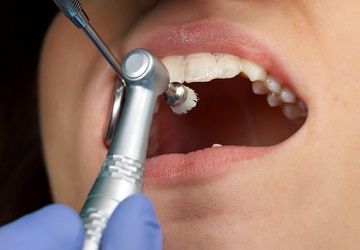ADA Weighs in on Dental Therapist Debate
Amid a flurry of coverage, the American Dental Association has weighed in on the dental therapy debate. As states have looked to authorize dental therapists as a means of providing care to underserved portions of rural populations, the ADA has said that dental therapists have not addressed the issue, even in states where they have already been introduced. Instead, the ADA recommends expanding access to existing dentists and providing additional Medicaid benefits.

The American Dental Association has thrown its support behind licensed dentists, rather than expand the role of dental therapists, in order to meet the oral health needs of underserved populations.
Expanding the role of dental therapists to meet the needs of at-risk patient populations in several states has been increasingly covered in many media outlets, including Dentist’s Money Digest®. In response, the American Dental Association (ADA) has released a statement further supporting licensed dentists instead of expanding the scope of practice for this new category of dental provider.
RELATED: More Coverage on Dental Therapists
· Dental Therapist Bill Struck Down in North Dakota
· The DMD Check-Up: Dental Therapy Controversies; Taking a Bite out of Crime
· The Battle Over Dental Therapist Role Heats Up
According to the ADA’s news release, there is no evidence that shows any new care models have actually increased access to dental care at reduced costs. Instead, data collected by the ADA’s Health Policy Institute indicates the number of dentists in the country will grow through 2035 and will outpace general population growth. The HPI also found that more than 27 percent of dentists currently practicing could add more patients to their practices.
Instead of adding a new category of dental providers, the ADA said there should be a focus on connecting underserved patient populations with dentists who are available to provide care. The ADA offered several solutions to this problem, including targeted outreach efforts from community health workers and improved funding for dental care under Medicaid. The ADA further explained that increased Medicaid funding would also increase the number of dentists who choose to participate in the program.
A recent research brief from the HPA found that 22 states could add expanded dental benefits to their existing Medicaid programs by adding just 1 percent more to their Medicaid budgets each year. The brief also found that most states only allocate less than 2 percent of their entire Medicaid budgets to dental coverage.
The ADA statement reemphasized that the organization will continue to work toward evidence-based, cost-effective solutions to meeting the dental care needs of the American people while remaining focused on preventing dental disease and expanding access to dental care for underserved patients.